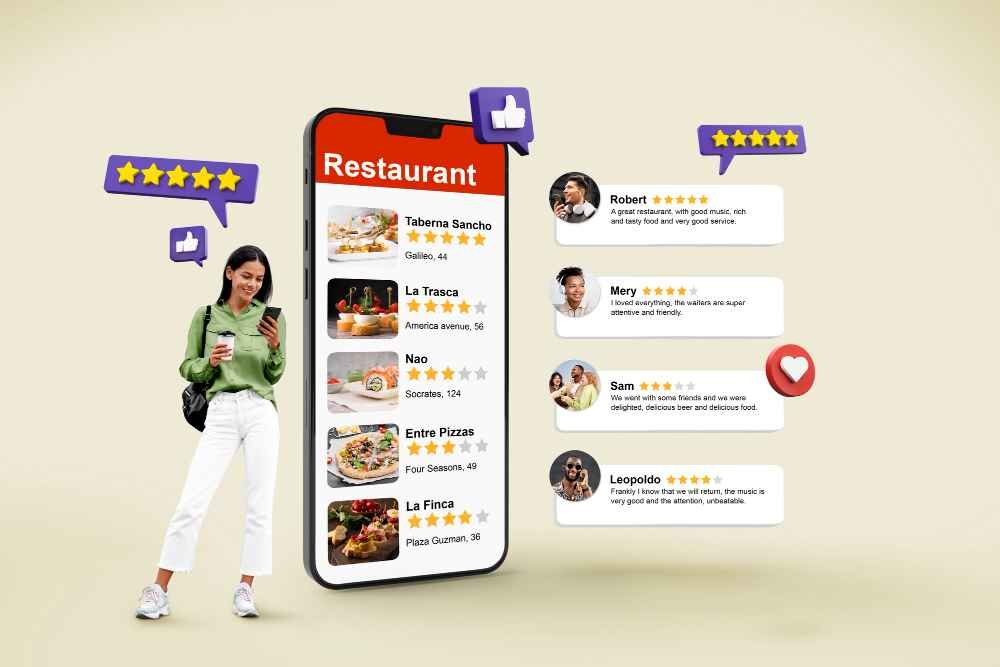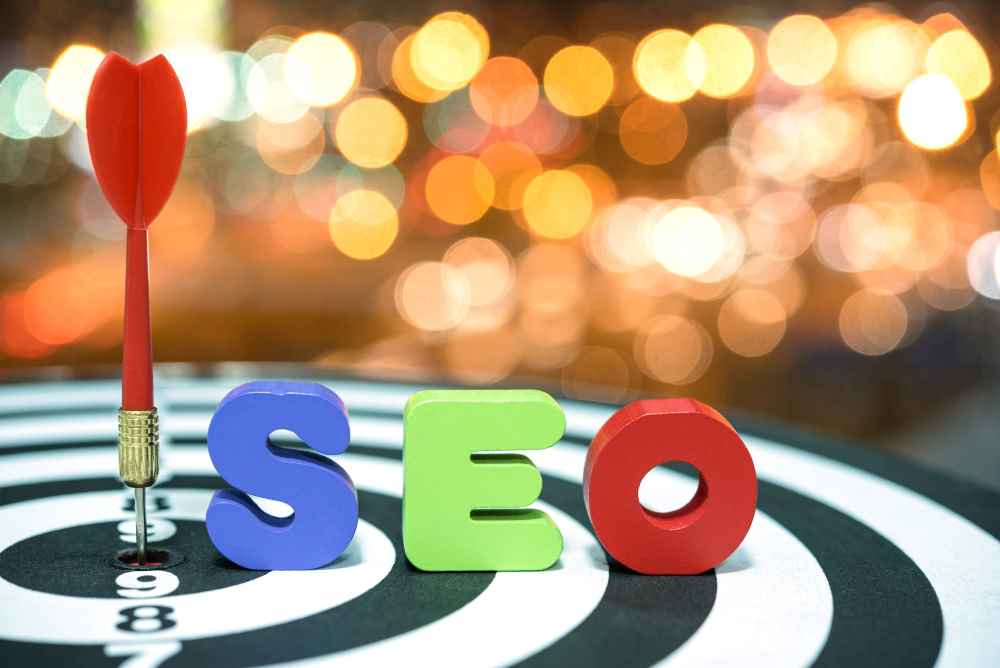Unlocking Success: Why Local SEO is Crucial for Small Businesses
In today’s digital age, small businesses face immense competition. Standing out locally is crucial. That’s where Local SEO for Small Businesses comes into play. It’s not just about being online; it’s about being found by your local community.
What is Local SEO?

Local SEO is a strategy to make your business more visible online to people in your local area. Here’s how it works:
- Optimizing Your Online Presence: This means making sure your business shows up when people in your area search for the services or products you offer.
- Claiming Business Listings: This involves registering your business on online platforms like Google My Business, Yelp, and other local directories. It helps ensure your business information is accurate and easy to find.
- Ensuring NAP Consistency: NAP stands for Name, Address, and Phone number. It’s crucial that these details are the same everywhere your business is listed online. Consistency helps search engines trust your business, which can improve your rankings.
- Generating Positive Reviews: Encouraging happy customers to leave positive reviews on platforms like Google or Yelp boosts your business’s credibility. Good reviews attract more customers and improve your local search rankings.
In simple terms, Local SEO helps your business appear in online searches when potential customers nearby are looking for your services, making it easier for them to find and choose you.
Why Local SEO Matters

Local SEO is incredibly important for small businesses. Here’s why:
- Attracts Nearby Customers: Local SEO helps your business show up in online searches made by people in your local area who are looking for the products or services you offer.
- Increases Visibility: When your business is optimized for local SEO, it’s more likely to appear at the top of search results, making it easier for potential customers to find you.
- Competes with Big Chains: Without local SEO, your business might get lost in the mix, especially against larger chains with bigger marketing budgets. Local SEO levels the playing field by focusing on your local community.
Example: Imagine you run a bakery in your town. If someone nearby searches for “bakery near me” on their phone, local SEO helps ensure your bakery appears in the search results. Without it, they might only see big chain bakeries instead of discovering your local gem.
Local SEO makes your business more visible to people in your area who are looking for what you offer, helping you attract more customers and compete effectively with larger businesses.
Boosting Visibility in Local Searches

To get your business noticed online by local customers, using Google My Business (GMB) is essential. Here’s what you need to know:
- Google My Business (GMB): This is a free tool from Google that lets you create a business profile. This profile includes your business name, address, phone number, hours, photos, and more.
- Optimizing Your GMB Profile: Make sure all your business information is accurate and complete. Add photos, respond to reviews, and keep your details up-to-date.
- Benefits of Optimization:
- Google’s Local Pack: This is a list of businesses that appear at the top of search results when someone searches for local services. A well-optimized GMB profile can help your business get into this list.
- Local Finder: This feature shows more detailed information about local businesses. An optimized profile helps your business appear here.
- Google Maps: When people search for services on Google Maps, an optimized GMB profile increases the chances of your business appearing on the map.
- Organic Rankings: These are the regular search results. A well-optimized GMB profile can improve your chances of showing up here too.
Example: Suppose you own a coffee shop. By creating and optimizing your GMB profile, when someone searches “coffee shop near me,” your shop is more likely to appear in the search results, Google Maps, and the Local Pack at the top of the page.
In short, Google My Business helps your business stand out in local searches, making it easier for nearby customers to find and choose you.
Shocking Statistics

Here are some surprising facts that show how important Local SEO is for small businesses:
- 46% of All Google Searches are for Local Information: Almost half of all searches on Google are people looking for local businesses or services. This means many people are searching for things like “restaurants near me” or “plumbers in my area.”
- 88% of Local Business Searches on Mobile Lead to Contact or Visits Within 24 Hours: When people search for a local business on their phone, most of them will either call or visit that business within a day. This shows that local searches often lead to immediate actions.
- 97% of People Learn About Local Businesses Online: Nearly everyone uses the internet to find information about local businesses. This means having a strong online presence is crucial for being found by potential customers.
Example: Think about your own habits. When you need a service or product, you probably search for it on Google. If you find a local business that looks good, you might call them or visit their store the same day. This is why having a strong online presence through Local SEO is so important.
These statistics show that many people are searching for local businesses online, and they often take action quickly. By focusing on Local SEO, you can make sure your business gets found by these potential customers.
Building Trust and Authority

Local SEO is important for establishing trust and authority for your business. Here’s how it works:
- Appearing in Local Search Results: When your business shows up in local search results, it tells people that your business is well-established and trustworthy in the community. People are more likely to choose a business that appears in these search results because it seems reliable and popular.
- Role of Reviews: Positive reviews are crucial. When potential customers see good reviews, it reassures them that others have had positive experiences with your business. This builds trust and makes them more likely to choose your services.
- Encouraging Positive Reviews: Ask your satisfied customers to leave positive reviews online. This can be done through Google, Yelp, Facebook, or other review sites. Positive reviews improve your reputation and help you rank higher in search results.
Example: Imagine you own a local bakery. When someone searches for “best bakery near me” and your bakery appears with several positive reviews, they are more likely to visit your bakery because they see that others have had good experiences.
Local SEO helps your business appear trustworthy and authoritative to potential customers. Positive reviews play a significant role in this, so encourage your happy customers to share their experiences online.
Importance of Online Reviews

Online reviews are extremely important for your business. Here’s why:
- Influence on Customers: Reviews can significantly impact whether someone chooses your business. Good reviews can attract new customers, while bad reviews can drive them away.
- Trust Factor: Studies show that 85% of people trust online reviews as much as personal recommendations from friends and family. This means that if your business has positive reviews, people are more likely to trust you and choose your services.
- Where to Get Reviews: Encourage your satisfied customers to leave reviews on popular platforms like Google, Yelp, and Facebook. These are the places where potential customers often look for information about businesses.
Example: Imagine you run a small restaurant. If someone reads several positive reviews about your food and service on Google, they are more likely to dine at your restaurant. On the other hand, if they see negative reviews, they might choose a different place.
Online reviews are crucial because they help build trust and attract new customers. Aim for authentic, positive reviews to boost your business’s reputation and success.
Optimizing for Mobile Users

Most people use their phones to search for local businesses. Here’s why making your website mobile-friendly is essential:
- Mobile Searches are Common: Most local searches are done on mobile devices like smartphones and tablets. This means many potential customers will visit your website using their phones.
- Mobile-Friendly Website: Your website should look good and work well on smaller screens. This includes easy navigation, fast loading times, and clear information.
- Impact of Poor Mobile Experience: If your website doesn’t work well on mobile devices, visitors might leave quickly. This is called a “bounce rate.” High bounce rates can hurt your search rankings and make customers less likely to return.
Example: Imagine someone is looking for a nearby coffee shop on their phone. If they visit your website and find it hard to read or navigate, they will likely leave and choose another coffee shop with a better mobile site.
Ensuring your website is mobile-friendly is crucial because most local searches are done on phones. A good mobile experience keeps customers happy and helps improve your search rankings.
Utilizing Local Keywords

Using local keywords is a key part of attracting customers in your area. Here’s how to do it:
- What are Local Keywords?: These are words or phrases that include the name of your city, town, or region. They help people find local businesses when they search online.
- Why Local Keywords Matter: When people search for services, they often include their location in the search. For example, someone might search for “best pizza in Bremerton” instead of just “best pizza.” Using local keywords helps your business appear in these searches.
- How to Use Local Keywords: Include the name of your city or region in the content on your website. This can be in your page titles, descriptions, blog posts, and other text.
Example: If you own a pizza restaurant in Bremerton, use phrases like “best pizza in Bremerton” or “Bremerton pizza delivery” on your website. This way, when people in Bremerton search for pizza, your restaurant is more likely to appear in the results.
In short, using local keywords helps ensure that your business shows up in searches made by people in your area, making it easier for them to find and choose you.
Leveraging Social Media

Social media is a powerful tool for connecting with your local community. Here’s how to make the most of it:
- Engage Locally: Use social media platforms like Facebook, Instagram, and Twitter to share updates about your business, local news, events, and how you are involved in the community. This helps you connect with local customers and show that you are an active part of the area.
- Share Engaging Content: Post interesting and relevant content that encourages people to like, comment, and share. This could include photos of your products, behind-the-scenes looks at your business, customer testimonials, and local event announcements.
- Drive Traffic to Your Website: By sharing links to your website on social media, you can drive more visitors to your site. For example, if you write a blog post about a local event, share the link on your social media pages.
- Improve Local SEO: Active social media engagement can improve your local SEO. When people interact with your social media posts, it signals to search engines that your business is popular and relevant, which can boost your search rankings.
Example: Suppose you own a bakery. You can use social media to post about new products, local farmers’ markets you participate in, and special community events you are involved in. This keeps your audience engaged and interested in your business.
Using social media to share local news, events, and engaging content helps you connect with your community, drive traffic to your website, and improve your local SEO efforts.
Citations and Backlinks

Citations and backlinks are important for improving your business’s online visibility. Here’s what they mean and how they help:
- Citations: These are mentions of your business’s name, address, and phone number (NAP) on other websites, like local directories (e.g., Yelp, Yellow Pages). Consistent citations across multiple sites help search engines trust your business information.
- Backlinks: These are links from other websites that point to your website. When reputable websites link to your site, it tells search engines that your site is trustworthy and valuable.
- How They Boost Local SEO: Citations and backlinks help improve your search engine rankings. The more consistent and reliable citations and backlinks you have, the higher your business will rank in local search results.
- Consistency is Key: Make sure your business details (NAP) are the same everywhere online. Inconsistent information can confuse search engines and hurt your rankings.
- Partner with Local Blogs and News Sites: Reach out to local bloggers and news websites to get them to write about your business and link to your website. This not only gives you backlinks but also helps you reach a wider local audience.
Example: If you run a plumbing business, getting listed in local directories and having a local news site link to your blog about plumbing tips can improve your local SEO.
Having consistent citations and getting backlinks from reputable sites are crucial for boosting your local SEO. They help search engines trust your business, which improves your visibility in local search results.
Creating Local Content

Creating content that focuses on your local area can greatly benefit your business. Here’s why and how to do it:
- Why Content Matters: In the world of SEO (Search Engine Optimization), content is very important. Search engines like Google use the content on your website to decide how relevant your site is to people’s searches.
- Local Content: This means creating blog posts, articles, or updates about things happening in your local community. Topics can include local events, news, or issues that matter to people in your area.
- Benefits of Local Content:
- Improves SEO: When you write about local topics, it helps your website show up in searches made by people in your area. This makes it easier for local customers to find you.
- Establishes Authority: Writing about local events and news shows that you are knowledgeable and involved in your community. This builds trust with your audience.
Example: If you own a local hardware store, you could write blog posts about local DIY projects, home improvement tips, or community events like town fairs or charity drives.
In short, creating local content helps your business appear in local search results and establishes you as an expert in your community. This attracts more local customers and builds trust.
The Cost-Effective Nature of Local SEO

Local SEO is a smart and affordable way to market your business. Here’s why:
- Lower Costs: Local SEO is cheaper than traditional advertising methods like print ads, TV commercials, or billboards. Many local SEO strategies, such as creating a Google My Business profile, are free.
- Higher Return on Investment (ROI): Local SEO often provides better results for the money you spend. This means you get more customers for less money compared to traditional advertising.
- Targeted Marketing: Local SEO focuses on reaching people who are already looking for the services or products you offer in your area. This means your marketing efforts are more efficient because you are targeting potential customers who are likely to be interested in your business.
Example: Instead of spending a lot of money on a newspaper ad that reaches a broad audience, local SEO helps your business appear in search results when someone nearby searches for what you offer, like “plumber near me.” This directly connects you with potential customers who need your services.
Local SEO is cost-effective because it’s cheaper than traditional advertising, provides a better return on investment, and targets people who are already searching for your services. This makes your marketing efforts more efficient and successful.
The Future of Local SEO

The future of local SEO looks very promising. Here’s what small business owners need to know:
- Voice Search and Smart Assistants: More people are using voice search tools like Siri, Alexa, and Google Assistant to find local businesses. For example, they might say, “Find a pizza place near me” instead of typing it into a search engine.
- Importance of Optimizing for Voice Search: As voice search becomes more popular, it’s important to make sure your business is easy to find through these tools. This means using clear and simple language in your business listings and website content.
- Accurate Business Details: Make sure your business name, address, phone number, and other details are correct and consistent everywhere online. This helps voice search tools and search engines find and recommend your business.
Example: Imagine you own a pet grooming business. If someone asks their smart assistant, “Where can I get my dog groomed nearby?” and your business details are accurate and optimized for voice search, your business is more likely to be suggested.
The future of local SEO involves adapting to new technologies like voice search and smart assistants. Ensuring your business details are accessible and accurate will help you stay ahead and be easily found by customers using these tools.
Understand This
Local SEO is essential for small businesses, not just an extra option. Here’s why it’s so important:
- Drives Local Traffic: Local SEO helps more people in your area find your business when they search online. This means more customers visiting your store or website.
- Builds Community Trust: When your business appears in local searches and has positive reviews, it builds trust with potential customers in your community. They are more likely to choose a business that others in the area trust.
- Enhances Online Visibility: Optimizing for local SEO makes your business more visible online. This means your business shows up more often in search results, making it easier for people to find you.
Action Steps:
- Start Optimizing Today: Don’t wait to improve your local SEO. The sooner you start, the sooner you’ll see results.
- Watch Your Business Grow: As you improve your local SEO, you’ll notice more local customers finding and choosing your business.
- Invest in Your Future: Investing time and effort in local SEO is an investment in the future of your business and your community. It helps ensure your business remains competitive and successful.
Example: If you own a small bakery and start focusing on local SEO, more people in your town will find your bakery when they search for “bakery near me” or “best cakes in [your town].” This increases foot traffic and sales.
In short, local SEO is crucial for driving local traffic, building trust, and enhancing your online presence. Start optimizing now and transform your small business into a local powerhouse. Don’t get left behind—embrace the power of local SEO and invest in your business’s future!
